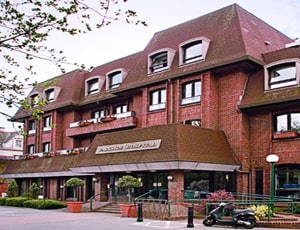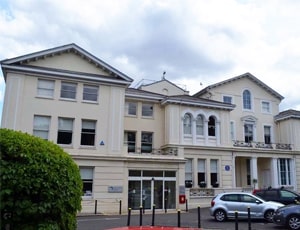Treatment cost

Apart from in-detail treatment procedures available, Parkside Private Hospital located in London, United Kingdom has a wide variety of facilities available for International Patients. Some of the facilities which are provided by them are Accommodation, Airport Transfer, Choice of Meals, Interpreter, SIM, TV inside room. Also listed below are some of the most prominent infrastructural details:


Apart from in-detail treatment procedures available, Cancer Centre London located in London, United Kingdom has a wide variety of facilities available for International Patients. Some of the facilities which are provided by them are Accommodation, Airport Transfer, Choice of Meals, Interpreter, SIM, TV inside room. Also listed below are some of the most prominent infrastructural details:
The immune system is important for fighting against cancerous cells. It is the normal function of the immune system to detect and kill abnormal or cancerous cells. However, in some cases, the cancerous cells hide from the immune system and cause cancer in the body. The mechanism may include making genetic changes in the cancerous cells that reduce their visibility, interfering in the normal cell surrounding the tumor, and the presence of proteins that evades the immune system.
Immunotherapy is a type of biological therapy. This therapy helps in boosting the immune system of the patients. Some immunotherapies are cancer-specific, while others generally boost the overall immunity.
There are various types of immunotherapy. The doctor performs the immunotherapy, which is best suitable for the patient. Some of the types of immunotherapy are:
You may have certain side effects after the immunotherapy. These side effects include headache, diarrhea, loss of appetite, confusion, shortness of breath, fatigue, and skin rashes. You should report the serious side effects to your doctor. The doctor may give you medications for managing the side effects. Never avoid the follow-up visit schedule. This will help your doctor to determine the efficacy of immunotherapy and the presence of any serious side effects.
Ask your healthcare adviser for the best multiple options and choose the one that meets your expectations
The Immunotherapy package cost in London varies from one hospital to another and may offer different benefits. The Immunotherapy package cost usually includes all the expenses related to pre and post surgery expenses of the patient. The comprehensive Immunotherapy package cost includes the cost of investigations, surgery, medicines and consumables. Stay outside the package duration, port-operative complications and diagnosis of a new condition may further increase the Immunotherapy cost in London.
There are several best hospitals for Immunotherapy in London. Some of the most renowned hospitals for Immunotherapy in London include the following:
The recovery of the patient many vary, depending on several factors. However, on an average, patient is supposed to stay for about 21 days in the country after discharge. This time frame is important to ensure that the surgery was successful and the patient is fit to fly back.
There are certain expenses additional to the Immunotherapy cost that the patient may have to pay for. These are the chanrges for daily meals and hotel stay outside the hospital. The extra charges may vary from 55 USD.
There are about 2 Hospitals in London that offer Immunotherapy to international patients. These hospitals have the required infrastructure and a decided Immunotherapy unit where renal failure patients can be treated. These hospitals comply with all the rules and regulations as dictated by the regulatory bodies and medical association in London
Some of the most sought after doctors for Immunotherapy in London are: